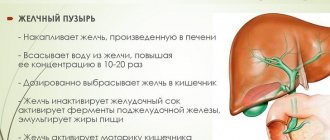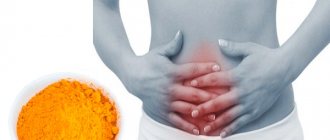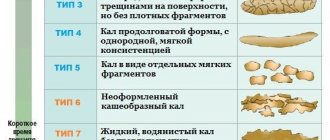Today, more than 400 species of parasites are known that can comfortably exist in the human body. However, the vast majority of them choose the intestinal tract as their place of residence, and not other organs and tissues. Do worms live in the stomach? Parasites rarely choose such a “home”. Basically, helminths settle here if it is affected by diseases that cause a decrease in the acidity of gastric juice. The second important fact is that parasites can only get into this organ by accident. If your stomach is healthy and functioning normally, then not a single helminth can live in an environment that forms hydrochloric acid. It will simply dissolve its outer shells.
Worms living in the stomach
We have established that the gastric section is an abnormal habitat for parasites that infect the human body. Can there be worms in the stomach? They can only get there by accident - the helminths are still looking for a comfortable place to live for themselves.
Small parasites (such as pinworms, roundworms, etc.) die even in a slightly acidic environment, so being here is deadly for them. Only large worms remain in the stomach. They are able to survive in its environment for a relatively long time. In particular, these are the following helminths:
- Pork tapeworm. Refers to tapeworms. The final host of the parasite is humans. The length of an adult (mature) individual can reach 3 meters. The main habitat of the worm is the intestinal tract.
- Bull tapeworm. Like the previous one, it refers to tapeworms. The final host of the parasite will also be humans. The helminth is widespread in Eastern Europe, the Philippines, Africa and Latin America. Its adult representatives choose the human small intestine as their place of residence. The size of a mature individual is amazing - from 4 to 10 meters!
- Human roundworm. This is already a round worm. Its length does not exceed 40 cm. It enters the stomach, just like tapeworms, by accident - when a patient coughs up sputum from the lungs and swallows this mass back (through the esophagus into the stomach).
- Toxocara feline or canine. Helminth, as the name suggests, is completely untypical for humans. It can get into the stomach accidentally after contact with a sick animal - if you kissed or stroked a cat or dog. The length of its body usually cannot be more than 12 cm.
- Whipworm. The parasite belongs to roundworms. Its usual habitat is the human large intestine. The main nutrition is tissue fluid and blood. Dimensions - 3-5 cm.
It should be noted that only small (children’s) tapeworm specimens (pork and bovine) can exist in the stomach. Sexually mature representatives simply will not fit in it. The remaining worms in the stomach can be of completely different ages. If the patient's gastric juice contains even a small amount of hydrochloric acid, this is already an unfavorable condition for the helminth. At any opportunity, he will try to change his place of residence.
Folk remedies for parasites in the stomach
Flax, garlic or ginger are often used as folk remedies for parasites. At the same time, you can independently carry out cleansing enemas from parasites with salt and soda. Their effectiveness is noticeable if a sufficiently large amount of mucus comes out along with the liquid. The recipe is very simple and everyone can remember it: you need to take 15 grams of salt and pour it into a container with 1 liter of water and heat it up a little. Then add another 15 grams of soda and use it further for its intended purpose. We must not forget that to effectively combat parasites, the resulting mixture must be kept in the intestines for at least half an hour.
Often, during the initial stage of parasite infection, it is necessary to take tablets or suspensions once and about a month later as a preventive measure. In addition, as a preventive measure against parasites, you will need to wash and iron all bedding and underwear, as well as wet cleaning the house. In addition, many doctors recommend taking preventive medications for worms 2 times a year.
Worms, affecting the human body, can settle in almost all organ systems, so the stomach is no exception. Helminthiasis is dangerous because worms do not manifest themselves at all for a long time, and when symptoms appear, the parasites already cause colossal harm to human health. Below we will talk in more detail about how parasites manifest themselves in the human stomach, and what methods can be used to destroy worms. Parasites in the human stomach are not uncommon, since infection most often occurs through the digestive tract. First, helminths infect the stomach, and then settle in the intestines, where they begin to develop and multiply, causing enormous harm to the entire body.
Since the helminths do not manifest themselves at first, it can be difficult to detect the infestation. When signs of infection appear, the body is already severely affected by helminths, and the person will need to not only get rid of the parasites, but also undergo a course of treatment to restore the organs.
How can you get infected?
Worms in the human stomach can occur in one of the following ways:
- Primary ingestion. Thus, helminth eggs and larvae may end up in the human stomach. Their important feature is their hard outer shell. It is this that allows you to survive the negative effects of hydrochloric acid without consequences and “travel” further - to a comfortable intestine. There the parasite develops and lives.
- Secondary ingestion. This is the entry into the stomach of sputum from the bronchi and lungs, which contains either eggs or vegetative forms of small helminths. By the way, the respiratory system is a popular place of residence for intermediate forms of parasites.
- Hematogenous route. How do worms end up in the stomach this way? The parasite enters through the bloodstream. Having left the blood vessel, it hooks onto the wall of the organ and remains in it. This route of movement is most typical for helminths “armed” with auxiliary hooks.
- Movement of vegetative forms. As a rule, this is a consequence of improper treatment of helminthiasis. As a result of exposure to drugs, the worm does not die, but begins to move, trying to get to a less aggressive habitat. The method is typical for the movement of large worms - in particular, bovine and pork tapeworms.
The passage of cysts and larvae through the stomach is in most cases painless for the patient. Discomfort can only be caused by the “travel” of adult forms - pain, bloating and other symptoms occur.
The main symptoms of the presence of worms in a person’s body
Signs of worms in humans at the beginning of the disease almost do not appear. During this period, neither the patient nor the doctor will be able to indicate the cause and symptoms of worms or other damage to the body in a person. Most often, this is discovered after unsuccessful drug treatment with various drugs. Only after a certain period has passed, the patient is sent for a full examination, which makes it possible to determine the presence of parasites in the human body. But based on some indirect signs, this can be done at an early stage of the lesion.
Causes of worms in humans
This can happen in the following cases:
- In contact with an infected domestic or wild animal.
- Swimming in a pool of water where parasites live.
- Eating foods that contain eggs or larvae of worms.
- Violation of personal hygiene rules.
Infection occurs more often in rural areas, but city residents are not immune.
Symptoms
Penetrating into the body and developing, parasites first penetrate the gastrointestinal tract and then spread to other organs. The appearance of worms in a person’s stomach and intestines is accompanied by the following disorders:
- Constipation. They occur when helminths are large and block the ducts.
- Blockage of the bile ducts can cause problems with bowel movements. But some of the helminths secrete specific substances that contribute to the appearance of loose stools in people and cause diarrhea.
- Signs of worms may appear in the form of excessive gas formation. In this case, an inflammatory process occurs in the intestines, and the person experiences severe pain.
- Bloating that lasts for a long period of time.
- Irritable intestinal tract syndrome may occur. This leads to the formation of a large amount of lipids in the patient’s stool.
If a worm has settled in a person’s muscles and joints, the symptoms are as follows:
- Local inflammation begins.
- Pain occurs.
- Parasites damage the tissues of the joints and muscles, which leads to a sharp rise in temperature and severe pain.
Symptoms of worms in the human nervous system are as follows:
- Nervousness develops.
- Depression may appear.
- Grinding of teeth in sleep is possible. This happens often in children.
- A person often wakes up at two or three in the morning. Toxins produced by parasites are eliminated from the patient’s body during this period. This also happens when worms leave the patient’s body at night through the anus.
- Hemorrhoids, which appear when there are parasites in the rectal mucosa.
Due to the presence of worms in various organs of the patient, immunity may be impaired, which is expressed in a sharp increase in the activity of protective cells. This causes the development of various types of inflammation in the infected tissues and the appearance of allergic reactions.
The process can also go in the opposite direction: the activity of protective cells is suppressed and immunity decreases, which leads to the danger of contracting various infectious diseases.
When worms occur, disturbances occur in the metabolic functions of the patient’s body, which are expressed as follows:
- A person loses weight quickly.
- The patient is constantly hungry, as the parasites eat all the nutrients that enter his digestive tract.
The reverse process is also possible, when worms become the main cause of obesity, which occurs when a person’s blood sugar level drops due to parasites. The body tries to get rid of them by increasing the fat layer. During this period, a person suffers from constant hunger.
Another sign of the presence of various types of parasites is anal itching. But other diseases also give the same symptoms, for example, chronic hemorrhoids or the appearance of an anal fissure. The same thing happens with inflammation of the intestines and many other diseases.
Very often, parasites cause the following skin lesions in the patient:
- Various skin rashes.
- Hives.
- Eczema.
- Local redness and other skin diseases.
Patients may also develop diseases of the respiratory system if they have settled in a person’s lungs, for example, asthma. Various types of tumors may appear and chronic fatigue may occur.
Worms lay eggs in the liver and lungs. The larvae that hatch from them damage the tissues of these organs, which manifests itself in the occurrence of obstructive jaundice and difficulty breathing. Parasites can penetrate the heart and clog blood vessels, which can lead to serious consequences such as a heart attack.
Diagnosis of the presence of different types of parasites in humans
The following methods are used to detect worms:
- Doctors interview the patient about his feelings and carefully record them.
- If the presence of parasites is suspected, the patient is sent for an X-ray examination or computed tomography.
It is possible to use ultrasound equipment, but x-rays give a more accurate picture of the location and number of parasites in organs such as the lungs, esophagus, etc.
Treatment for human infection with worms
It is impossible to cure this disease with conventional medications, such as antibiotics.
x
There are special drugs for this that have a detrimental effect on most parasites. Treatment courses are varied and depend on the type of worms.
All of these products have some toxicity, so it is important to strictly follow doctors’ recommendations for their use.
To combat nematodes, medications such as:
- Piperazine.
- Vermox.
- Vero-Mebendazole.
- Gelmodol VM.
- Albendazole (Nemazol) and others.
Most of these products kill adult nematodes, but do not affect their larvae and eggs. This allows the disease to make itself felt again. Therefore, you can use traditional medicine. For example, take tansy infusions or eat pumpkin seeds. For treatment, you need to purchase unshelled pumpkin seeds, peel them with your own hands and eat the thin film that exists between the seed and the peel.
x
https://www.youtube.com/watch?v=_9Ckv9f48c0
You can use this remedy in the morning in a dose of up to 0.3 kg. Must be eaten within 1 hour. First, the seeds are crushed and mixed with jam or honey. After this, it is not recommended to eat for 3-4 hours and an enema is given. These steps should be repeated after 14-15 days.
If the medication course does not help, then surgical intervention is prescribed. It is especially necessary when parasites colonize the patient’s lungs. The operation allows you to get rid of worms almost completely. After it, doctors can recommend various medications to the patient to strengthen the immune system.
VseoParazitah.ru>
Signs of helminths in the stomach
Does your stomach hurt when worms have settled in? Even experienced specialists cannot give a definite answer to the question - this is too individual an indicator, depending on many factors.
Here are the main symptoms of worms in the stomach:
- In the epigastric area, the patient will feel heaviness or other discomfort.
- The person has signs of intoxication in the body.
- Violation of the usual mode of defecation, characteristics of feces.
- Flatulence.
- Anemia.
- Sleep disturbance.
- Chronic feeling of fatigue.
- Nervousness.
- Exacerbation of chronic gastrointestinal diseases - gastritis, stomach ulcers, etc.
You see that there are no specific symptoms on the basis of which it can be said that worms are in the stomach. Therefore, external manifestations are not enough for the attending physician to establish this fact. In this case, specialists resort to endoscopic examination.
Symptoms of parasites and worms in the gastrointestinal tract
Foreign organisms that lead a parasitic lifestyle in the body of their host disrupt the functioning of many organs, causing inflammatory processes and severely destroying body tissue.
Parasitic individuals in the intestinal tract, for their development and reproduction, use beneficial substances supplied with food intended for the host. The consequences for humans are sad. The body experiences a severe lack of microelements and vitamin complexes.
Against the background of severe helminthiasis, the processes of growth and normal development, both physically and psychologically, are seriously disrupted. Helminths have the ability to perfectly adapt and live in the host’s body for decades. Helminth eggs have a pronounced resistance to environmental factors.
While in the digestive tract, various types of helminth infections can disrupt the digestive process by releasing specific toxic substances for their protection, inactivating enzymatic activity. Helminthiasis can cause gastritis and other dyspeptic disorders.
Signs that appear when infected with parasites can be very different in their manifestations. In the vast majority of clinical cases, discomfort and pain are observed at the location of the parasites. Thus, helminths, whose habitat is the skin, damage the dermis, which leads to allergic reactions. Parasites localized in the pulmonary structures can cause a disturbing cough or shortness of breath. Symptoms of infection with dwarf tapeworm include weakness throughout the body, memory loss, pain in the abdomen and head. Sometimes nausea and constant vomiting are diagnosed, as with a stomach ulcer.
Stool upset, bad breath, pain in the intestines or disturbances in the digestive process are in most cases associated with the action of parasites in the digestive tract. The effect of foreign microorganisms on the human body as a whole leads to the following symptoms:
- increased weakness;
- attacks of headaches;
- insomnia;
- bloating;
- rashes and itching on the skin of an allergic nature;
- attacks of bronchial asthma.
In addition, the overall resistance of the body decreases due to changes in the functioning of the immune system. In young children, helminthiases manifest as delayed physical and psychological development.
Diagnostic methods
Whether there are worms with stomach pain can only be determined by a comprehensive diagnosis. Its methods in this case include the following:
- Biochemical and general analysis of patient blood samples.
- Tests for the antigen-antibody complex.
- Endoscopic examination.
I would like to dwell on the last diagnostic method. Endoscopy is the insertion of a special thin probe into the patient’s stomach through the esophagus, at the end of which there is a video camera. This research method helps determine many things:
- Visual detection of large helminths by a specialist.
- Detection of traces of waste products that have settled in the stomach, parasites.
- Assessment of the general condition of the stomach.
- The basis for determining a particular treatment is from stopping bleeding to removing the established parasite.
Contraindications to endoscopy
As you noticed, the endoscopic method is associated with the mechanical penetration of a probe into the patient’s stomach. And such manipulation may be contraindicated for the patient in a number of cases:
- Hypertensive disease.
- Angina pectoris.
- Myocardial infarction.
- Esophageal ulcer.
- Hemophilia.
- Esophageal spasm.
- Aortic aneurysm.
- Varicose veins passing through the esophagus, stomach, etc.
If the patient has contraindications to gastroscopy, then this manipulation is replaced by ultrasound and radiography. But these methods will be inferior in their information content and functionality to endoscopy.
Treatment methods
Therapy in this case will be aimed at destroying the parasites that have settled in the stomach, as well as at restoring the organ and the entire body of the patient affected by their vital activity.
Treatment consists of three areas:
- Drug therapy.
- Ethnoscience.
- The patient is taking biologically active additives - dietary supplements.
We will consider each of the methods in detail. However, such methods of conservative treatment are used only in cases where there is a small parasite in the stomach. When this is a large-sized individual (the same bovine tapeworm), then the patient is prescribed only surgical intervention.
Drug therapy
All drug treatment for helminthic infestation will be divided into two areas:
- Mebendazole group. These are drugs such as Vormil, Albendazole, Vermox. They are distinguished by greater toxicity compared to the second group. Hence, many experts believe that the use of such drugs to get rid of worms in the stomach is unjustified.
- Levamisole group. It includes the following products - “Dekaris”, “Pyrantel”, “Helmintox”. Less toxic to the human body, but at the same time a good antihistamine effect.
The drugs are usually prescribed at a dose of 10 mg/kg of human body weight. The patient takes the remedy in the morning, after a light breakfast.
About treatment
Treatment of the gastric form of helminthiasis is not much different from the treatment of intestinal invasion. It is quite possible to remove worms yourself, that is, to cleanse your own stomach of parasites at home. However, you should not start treatment without consulting a doctor and information about which parasites are harmful to your health. Not every medicine can effectively fight all types of helminths.
In addition to the variety of worms, to carry out therapy it is necessary to take into account a number of individual nuances, such as weight and age, the presence of chronic diseases and the severity of the body’s immune response to the activity of worms. Therefore, you should take exactly the pills that the doctor prescribes, and also follow the treatment regimen developed by the doctor.
The following medications help get rid of worms in the digestive system:
| Name of parasites | Name of the disease | Medicines used |
| Chain | Bull - teniarinhoz Porcine – taeniasis and cysticercosis Dwarf – hymenolepiasis | "Fenasal" "Mebendazole" "Albendazole" |
| Roundworms | Ascariasis | "Albendazole" "Dekaris" "Mebendazole" "Vermox" "Levamisole" "Piperazine" "Vormin" |
| Trichinella | Trichinosis | "Tiabendazole" "Mebendazole" "Pirantel" "Albendazole" |
| Toxocars | Toxocariasis | "Tiabendazole" "Medamin" "Mebendazole" "Levamisole" "Pirantel" "Albendazole" |
| Whipworms | Trichocephalosis | "Carbendatsim" "Mebendazole" "Albendazole" |
| Ankistolomas | Hookworm | Complex therapy combining broad-spectrum anthelmintics with drugs that compensate for iron deficiency. Arising from this invasion |
| Ugritsy | Strongyloidiasis | "Ivermectin" "Mebendazole" "Albendazole" |
Of course, in order to remove worms from the stomach, other antiparasitic medications or combinations thereof can be used.
As for traditional methods, their use for gastric forms of helminthiasis is not effective. Folk remedies do not destroy worms, but only inhibit their activity and are expelled from the human body naturally. In this regard, they are called anthelmintics.
However, in order for the gastric form of invasion to form, there must be certain prerequisites, often associated with poor patency in the intestinal lumens. Accordingly, when using anthelmintics, there is a high probability of not getting rid of the worms, but simply moving the source of the disease from one part of the digestive system to another.
Video: roundworms in the human stomach.
ethnoscience
Since worms in the stomach are considered one of the mildest forms of helminth infestation, many believe that in this case, simple folk remedies can be used. We advise you not to ignore the recommendations of a professional doctor when using this method of treatment.
What you can use from this category:
- Onions or garlic. It is enough to eat this product periodically for its negative effect on the worms that have settled in the stomach. Garlic or onions are eaten either alone or in combination with raw pumpkin seeds or milk for the best effect.
- A herbal decoction of three components - crushed tansy flowers, which are mixed with wormwood and cloves. But be careful - the method is not recommended for pregnant women and nursing mothers.
- Walnuts and birch leaf decoction. Mild products that are particularly suitable for pregnant women and young children.
Symptoms of intestinal invasion
According to scientists, the source of chronic diseases is not only a person’s poor lifestyle and diet, but also helminth invasions. The parasite begins to influence the well-being of the patient only when it hatches from the larva, matures and begins to lay offspring. At the moment when the parasite's offspring hatch, the larvae begin to secrete waste products, injure the intestines, and the person begins to feel unwell and have abdominal pain, which doctors may regard as an ulcer.
Symptoms of helminth infestation may be:
The manifestation of these symptoms occurs individually for each person, but even if they do not appear all at once and to a minor extent, you should immediately consult a specialist. 1-2 symptoms may indicate the initial stage of helminthiasis.
Prevention
Preventive measures against worms in the stomach are the same as for counteracting any other helminthiasis. First of all, this is compliance with the rules of personal hygiene:
- Wash your hands before eating, after going outside and going to the toilet.
- Mandatory washing of fresh vegetables and fruits, herbs under running water.
- Heat treatment of meat, fish, eggs before consumption.
Worms in the stomach are a fairly rare occurrence. Endoscopic diagnosis helps to identify it. Treatment and prevention are no different from the fight against other helminthic infestations.
Signs of parasites in the body
- The cause of asthma is often the fluke parasite that “lives” in the human liver.;
- in people suffering from cancer, the gastrointestinal tract is clogged with dry fecal deposits, and they serve as an attractive environment for parasites;
- from a lack of silicon, which is “devoured” by worms, diseases such as eczema and psoriasis can develop in the human body;
- rare bowel movements can occur from abundant helminthic infestation, which blocks the bile and intestinal passages, which causes constipation;
Symptoms of parasites. Everyone thinks that diarrhea is a way to get rid of infections in the body or a consequence of eating low-quality foods. This is usually true, but it also happens that the symptoms of frequent watery bowel movements are a function of the worms producing hormone-like substances that lead to loss of sodium and chloride.
- As a result of the search for more convenient places to live, and therefore the movement of parasites throughout the body, joint and muscle pain may appear, which is often attributed to arthritis. An attractive environment for them is joint fluid and muscles;
- due to irritation of the intestinal lining by parasites, there is a possibility of penetration of undigested molecules into them. As a result of this, the body turns on a protective function, which manifests itself as the production of protective cells - eosinophils. They cause tissue inflammation, and this, in turn, leads to allergies;
Symptoms of parasites. The presence of worms in the intestines can cause many skin diseases; impotence is a consequence of Trichomonas feeding on sperm; poor sleep, waking up in the middle of the night, usually at 2-3 o’clock, can serve as a signal of the presence of parasites, which the body gets rid of with the help of the liver.
- chronic fatigue and weakened immunity can also be symptoms of the presence of foreign residents; Multiple sclerosis is a disease of the spinal cord and brain. Scientists have found that the cause of this disease can be trematodes that reach the brain and spinal cord and multiply there. These parasites enter the human body along with dairy products. They also cause depression and irritability.











